Grades 9-12
When you come to BC High, you’ll be challenged with complex, relevant subject matter based on the classical roots shared by the world’s great leaders and thinkers. The environment is both rigorous and wholly supportive to deepening interests and developing intellectual competence. Young men emerge in four years’ time, prepared for success in college or any other path of their choosing.
With dedicated faculty, 21st-century technology, and an average class size of 22, you’ll be able to foster greater knowledge of both the world and yourself.
Please use the drop-down menu to view the high school curriculum.
As a product of the longest continuous civilization in western history, the classical languages serve as a liberalizing influence challenging him to stretch his horizons beyond the constructions of the “here” and “now.” They promote contact with the world, and the languages and customs of other peoples. From a traditionally prominent position in Jesuit high school curricula, the study of classics continues to hold a unique position. The student comes to appreciate the pursuit of excellence, the need for order, and the value of precise, organized thinking. We require the student of classics (Latin and Greek) to attain a high degree of familiarity with the civilizations of Greece and Rome, and thus to encounter in depth the roots of his own culture, language, and historical experience. He must examine and criticize the ideas, ideals, and patterns of thought brought to birth in classical times and still influencing, overtly or subtly, the processes of western civilization.
The English program seeks to instill in students an affinity for language and a mastery of it by acquainting them with challenging literature and by encouraging them to explore their capacity for self-expression. It seeks to foster an appreciation for and a sensitivity to language and literature, especially as these endeavors expand the student’s awareness of himself; broaden and deepen his store of experience; and enable him to enter into communication not only with people of his own time and place but also with those of others. The English program also encourages students to form a system of values and to gain a greater comprehension of life, one based on the essential human dignity that informs great literature. The English program is intended to encourage each student’s growth and to enhance his ability to express the spiritual and emotional maturity he has attained.
The goal of the Fine and Performing Arts program is to develop the individual’s creative and expressive potential as it relates to creating and appreciating artistic work. The fine and performing arts experience seeks to provide students with the skills necessary to recognize and express ideas about an artistic experience and to develop sensitivity to and appreciation for aesthetics. These experiences should foster confidence and creative expression while leading to an awareness of the important role of the arts in the human experience. The department also strives to aid students in identifying their own artistic potential and in developing this to the level of skill necessary to move easily into a college arts curriculum.
The primary goal of the program is to use mathematics to develop in our students the confidence and selfesteem necessary to become students who can think logically and clearly. As Nikolai Lobachevski, one of the founders of non-Euclidean geometry, observed, “There is no branch of mathematics, however abstract, that does not eventually apply to the real world.” So too, the Mathematics department believes in the importance of making connections for the students from mathematics to the physical and life sciences, the social studies, and the humanities. As our world moves from an industrial to an informational society based on new technology, it is important not only to demonstrate the uses of the new technology, but to also demonstrate the large role that mathematical reasoning has and will have in the future.
The Modern Language department believes that the teaching of a variety of modern languages enhances the goals of Boston College High School and, especially, assists in developing in the BC High student the characteristics expressed in the Graduate at Graduation. A degree of fluency in a foreign language and acquaintance with a foreign culture is a requisite for living in today’s multicultural American society and our increasingly interdependent world. To fulfill these beliefs, our students follow a rigorous and challenging curriculum.
The theology curriculum works to develop knowledge, attitudes, and behavior of Christian faith, values, and service among our students within the Jesuit educational tradition. While students are expected to become familiar with the Catholic tradition, an atmosphere of open dialogue is maintained in our classrooms at all times. Our academic program provides opportunities for students to examine their own faith and to develop the leadership and community development skills of living faith out in the contemporary world.
Science is a dynamic, highly structured process of inquiry into the natural and physical world; science is not a static accumulation of facts. A sound science education combines the development of specific analytical skills, an appreciation of the historical path that led to our present perspectives, and an understanding of the relationship of science and technology to other aspects of human activity in our rapidly changing world. Thus, a solid science background is invaluable in finding creative solutions to complex human problems in any field.
The philosophy of the Social Studies program is rooted in the idea that the study of history and the social sciences provides students with the basis to evaluate their world and their places in it. The role of the individual in actively shaping his world is at the center of student learning. The moral and ethical implication of their learning is emphasized. The curriculum focuses on a number of common themes: the democratic ideal, the diversity of world societies, the interdependent nature of global events, the significance of economic and technological development, and participatory citizenship.
As part of a Jesuit, Catholic, college preparatory school, the Guidance Department is dedicated to the care and development of each student. The Guidance Department supports students with academic and personal counseling throughout their years at BC High. Counselors are focused on assisting students as they make decisions that will affect their education. The department strives to implement programs that will enable them to reach their full potential at BC High and beyond. In each grade, students are provided with appropriate academic and personal advising to ensure they have an optimal experience at the high school and are prepared for college. Members of the department offer academic counseling that deals with the students’ practical needs: study skills, student/teacher relationships, course selection, peer relationships, career information, testing, and college selection. Furthermore, the department offers a comprehensive college counseling program which involves: over 20 course meetings in Junior and Senior year, fall and spring college fairs at BC High featuring over 150 colleges and universities, individual presentations from over 115 colleges and universities, the chance to interview with over 22 colleges on our campus, and individualized support with the creation of a personal “College List” and applications. The department also sponsors summer college trips for students and hosts over 10 evening events for parents and students to help families navigate the intricacies of the college search and financial aid processes. Additionally, the Guidance Department provides personal counseling on a short-term basis to enhance a student’s knowledge and acceptance of self, as well as to support him in understanding issues and solving problems. The department furnishes referrals for students and families to outside counseling agencies if the need for more lengthy or specialized services should arise.
During both their Freshmen and Sophomore years, all students take a six-week Health and Wellness course that provides healthy tools to help students navigate adolescence. In both courses, students will be exposed to an array of guest speakers (through our speaker series),who discuss topics ranging from stress and healthy coping, to building and maintaining healthy relationships.
The Freshmen Health and Wellness course is based on Maslow’s Hierarchy of Needs with the twenty lessons centered around the five principle tiers: physiological, safety, love and belonging, esteem, and self-actualization. Some of the various topics covered are; sleep hygiene, assessment of one’s personal health, improving personal fitness, managing stress, lowering the risk of infectious and chronic diseases, educated wellness choices, and healthy boundary setting skills.
The Sophomore Health and Wellness course expands upon the topics covered in Health and Wellness I. In this course, students will be given the opportunity to sharpen the health and wellness knowledge they acquired in the previous course (Health and Wellness I) through a series of investigative learning activities and discussions. The central focus of the curriculum is to teach students how to make educated wellness choices.
School & College Counseling
We understand the needs of freshmen differ greatly from those of seniors, so we take great care to give you the appropriate academic and personal advising each year to safeguard your experience and ensure that you’re prepared for success on campus, in college and beyond.
Post-Secondary Seminar (Juniors)
During the second semester, juniors meet with their counselor in small groups once per cycle. The meetings will focus on issues related to the college application process and will assist students as they begin their college search. Among the issues discussed in the small group meetings will be taking standardized tests, developing an appropriate list of colleges, visiting campuses, selecting a major, -understanding ways to apply, writing the college essay, becoming aware of application deadlines and scheduling interviews.
Post-Secondary Seminar (Seniors)
During the first semester seniors meet with their counselor in small groups. Counselors will help students manage the college search and application process. Application procedures and other important aspects of the college process will be reviewed thoroughly. In addition to the small group discussions, counselors will meet individually with seniors to discuss their specific college plans.
Centers of Human Excellence
The Centers of Human Excellence provide a way for BC High to define human excellence in our Jesuit context, helping our students fully grow into men of competence, conscience, compassion, and commitment.
Each of our five centers offers a student-driven academic and formational Certificate Program that students can elect to begin during their Sophomore year course selection process. There are four Certificate tracks that our students can take, and one non-certificate integration into our curriculum.
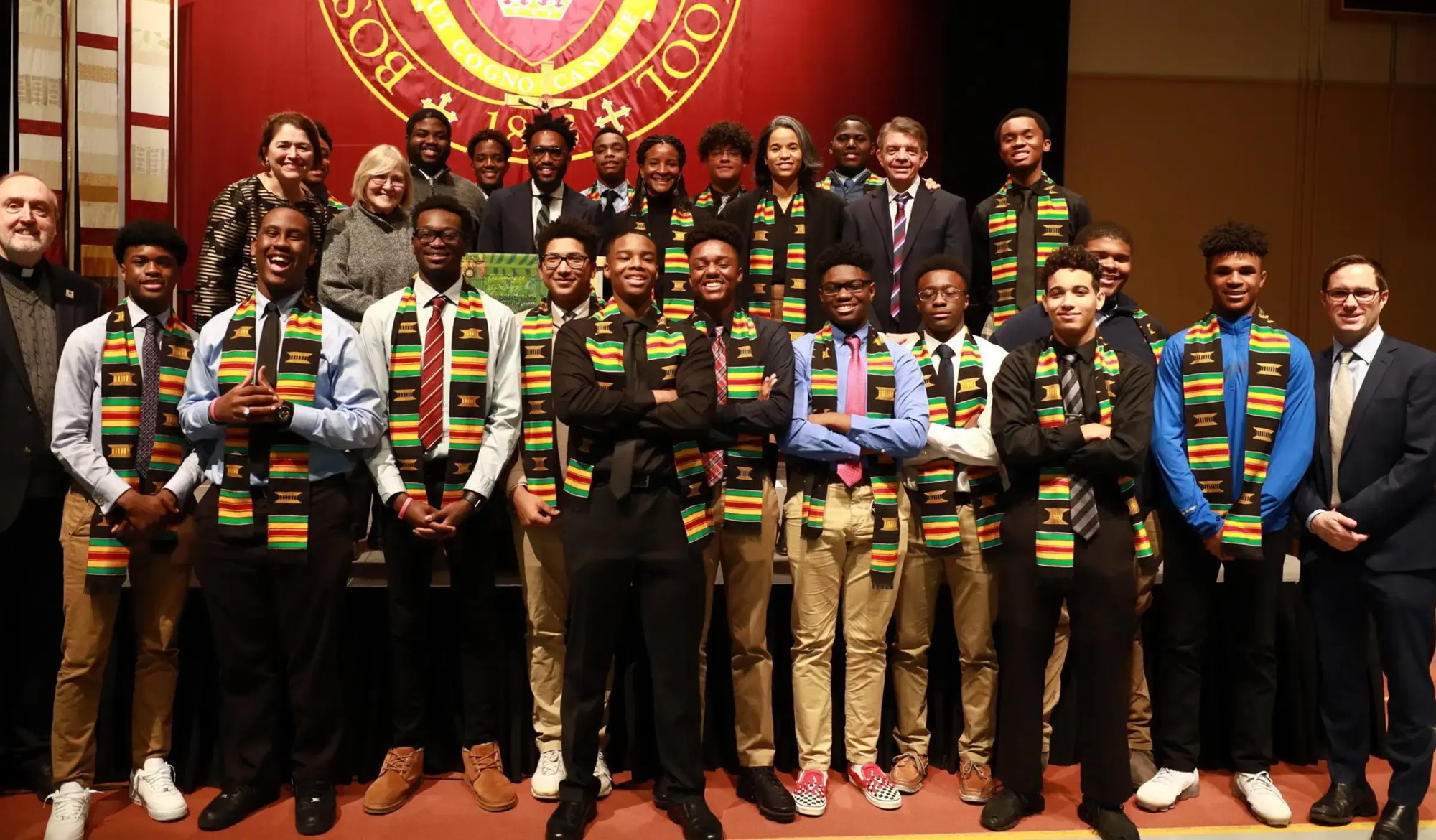
Human Diversity is a gift that BC High strives to promote, affirm, and celebrate. As a Jesuit, Catholic school, we are committed to justice, equity, and inclusion as they are essential to meaningful learning, personal growth, and loving relationships.
Diversity, equity and inclusion are central to our mission. We are committed to building a community that respects and affirms all our members; honoring diversity of race, ethnicity, national origin, physical ability, religion, sexual orientation, and socioeconomic status.
Students taking courses with a DEI Designation should expect to:
- Isolate elements of race, equity and justice as primary focus areas.
- Identify acts of bias and understand the power of being an antiracist.
- Identify various pillars of diversity and the injustices that have unfairly affected themselves and others, either now or historically.
- Examine their own “personal, local, and immediate” experience(s) with inequity and injustice through the content and assessments.
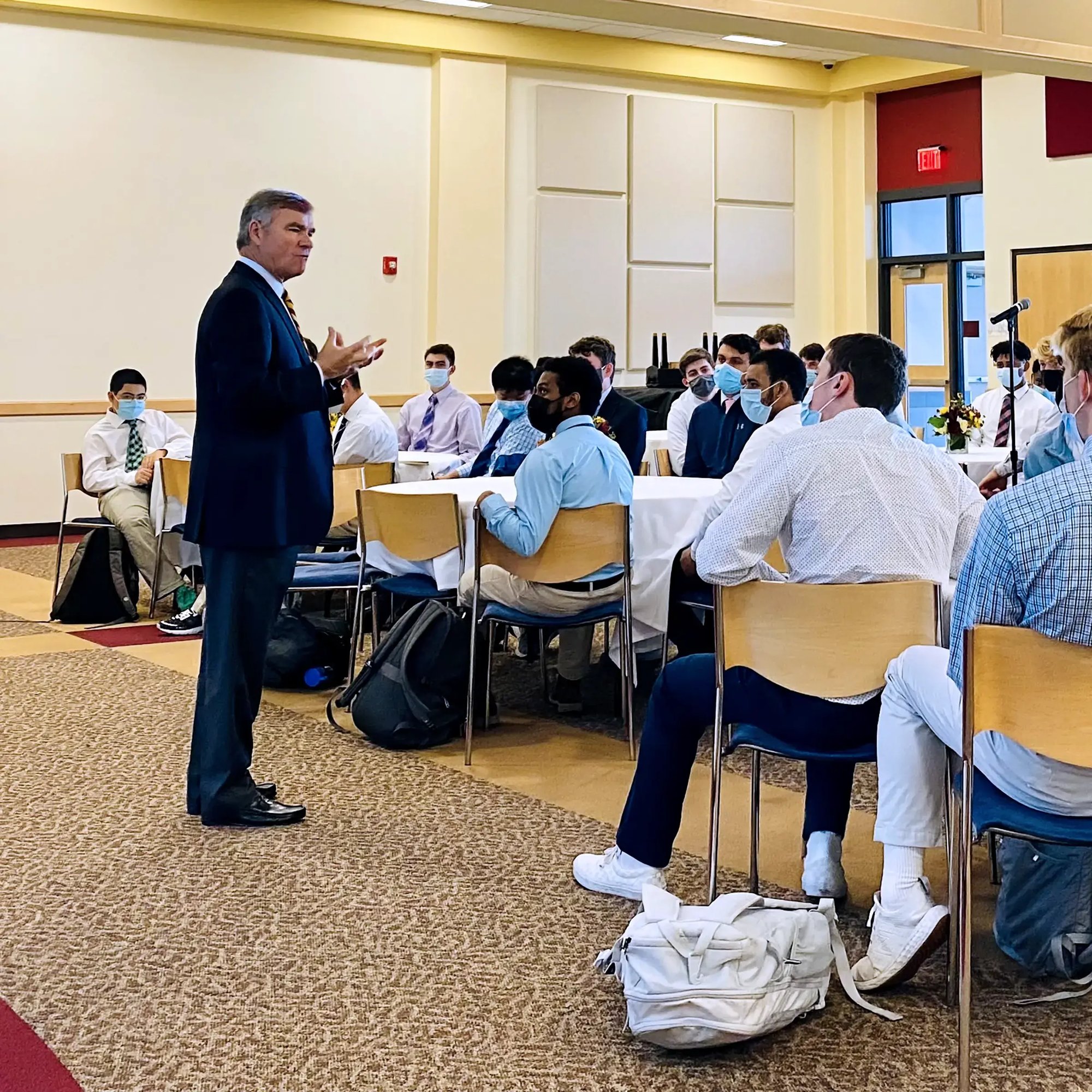
The Michael D. White ’70 Center for Emerging Leaders seeks to form virtuous leaders with the dynamism, self-awareness, and humility needed to be agents of change. We are committed to fostering student growth in the practical skills needed for leadership—effective
communication, thoughtful collaboration, and other-centered ambition—to empower our students to serve as transformational leaders.
We seek to inspire young men who will lead with the Ignatian charism “Spiritu, corde, practice”—in the Spirit, from the heart, practically.
Students taking courses with a Leadership Designation should expect to:
- Describe and recognize the pillars of leadership in the Ignatian tradition: self-awareness, dynamism, humility, and magnanimity.
- Examine their own leadership style and identify opportunities for growth.
- Develop the interior knowledge that leadership is other-centered and is about empowering others to be their best selves in service of the greater good.
- Relate the pillars of Ignatian leadership to their daily lives and experiences.
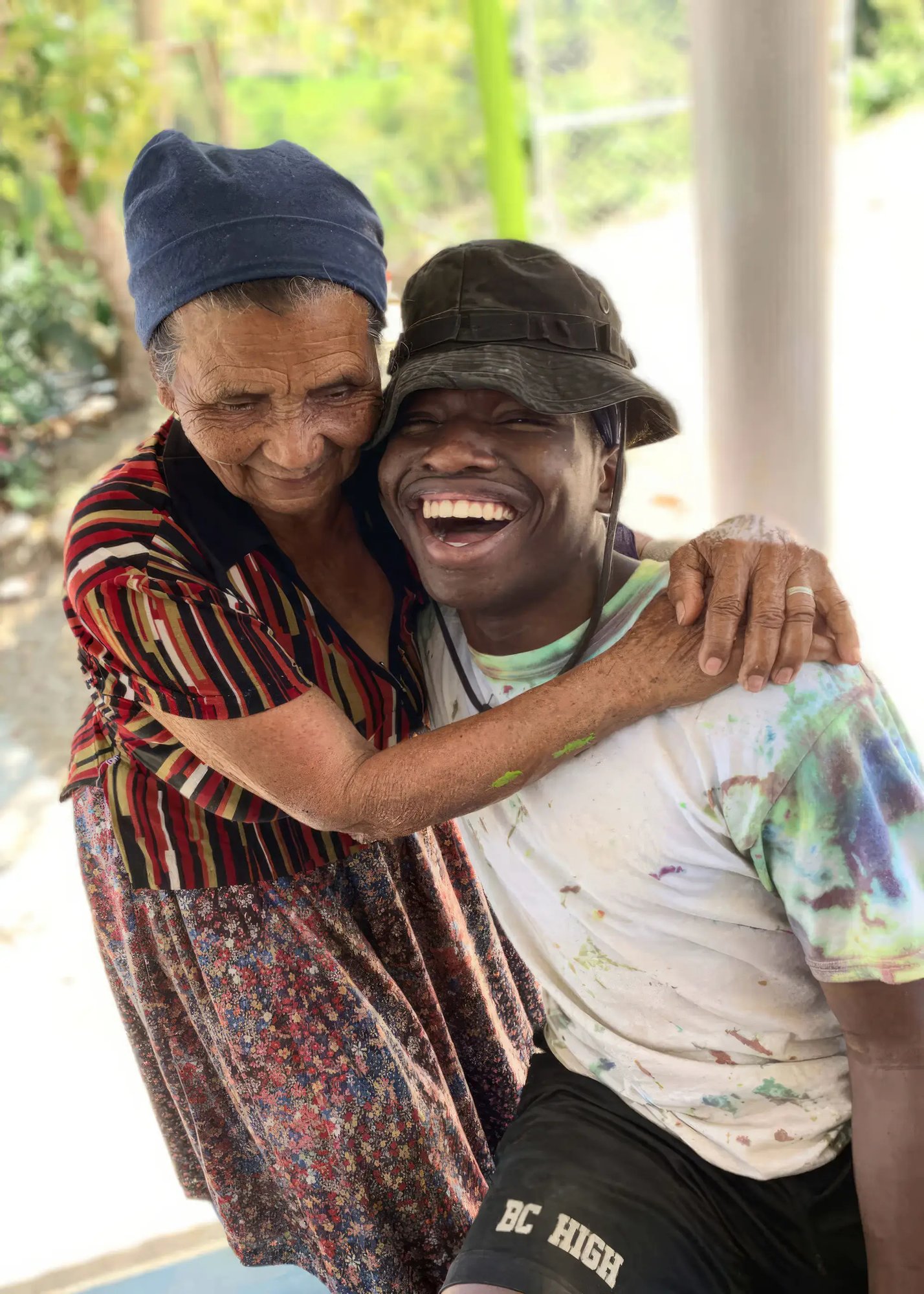
Global Citizens are those who continuously seek to deepen their awareness of their place and responsibility, both locally and globally, in an increasingly interconnected world; those who stand in solidarity with others in the pursuit of a sustainable earth and a more humane world as true companions in the mission of reconciliation and justice.
Students taking courses with a Global Designation should expect to:
- Show interest and strive to understand global issues
- Value multiple perspectives and question your own perspective/values
- Reflect on your progress in actively striving to be a global citizen
- Work to identify actions that promote interculturality
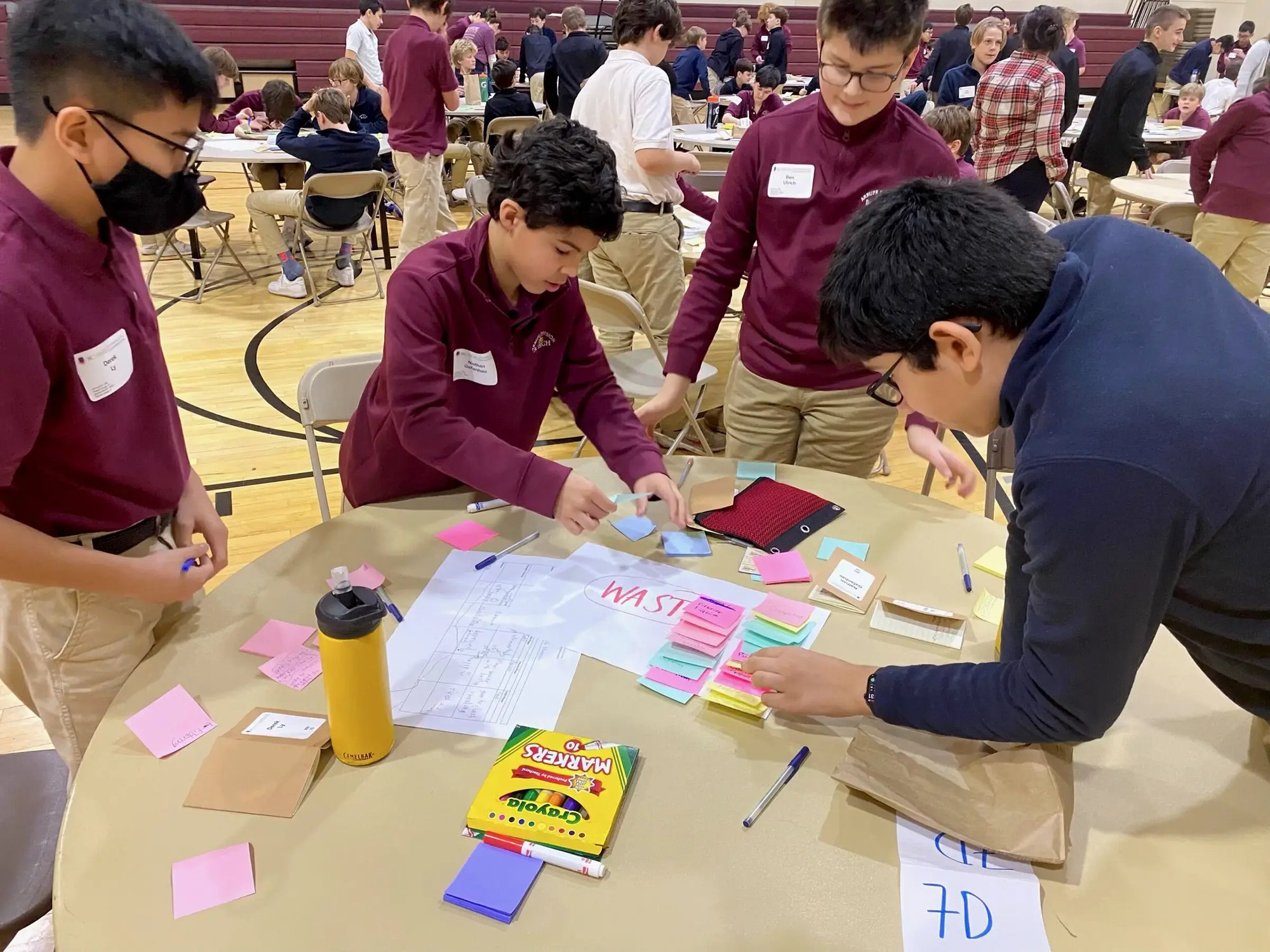
The Shields Center for Innovation believes each student can build their innovation mindset and entrepreneurial self-efficacy. Through partnerships with our local and global innovation ecosystems and communities, students engage with real-world, real-time challenges.
Students taking courses with an Innovation Designation should expect to:
- Become action-oriented problem solvers who understand self, others, and context
- Build their innovation mindset
- Experience a real-world, contextually-relevant challenge as part of the curriculum
- Apply learning through projects sponsored by community organizations and businesses
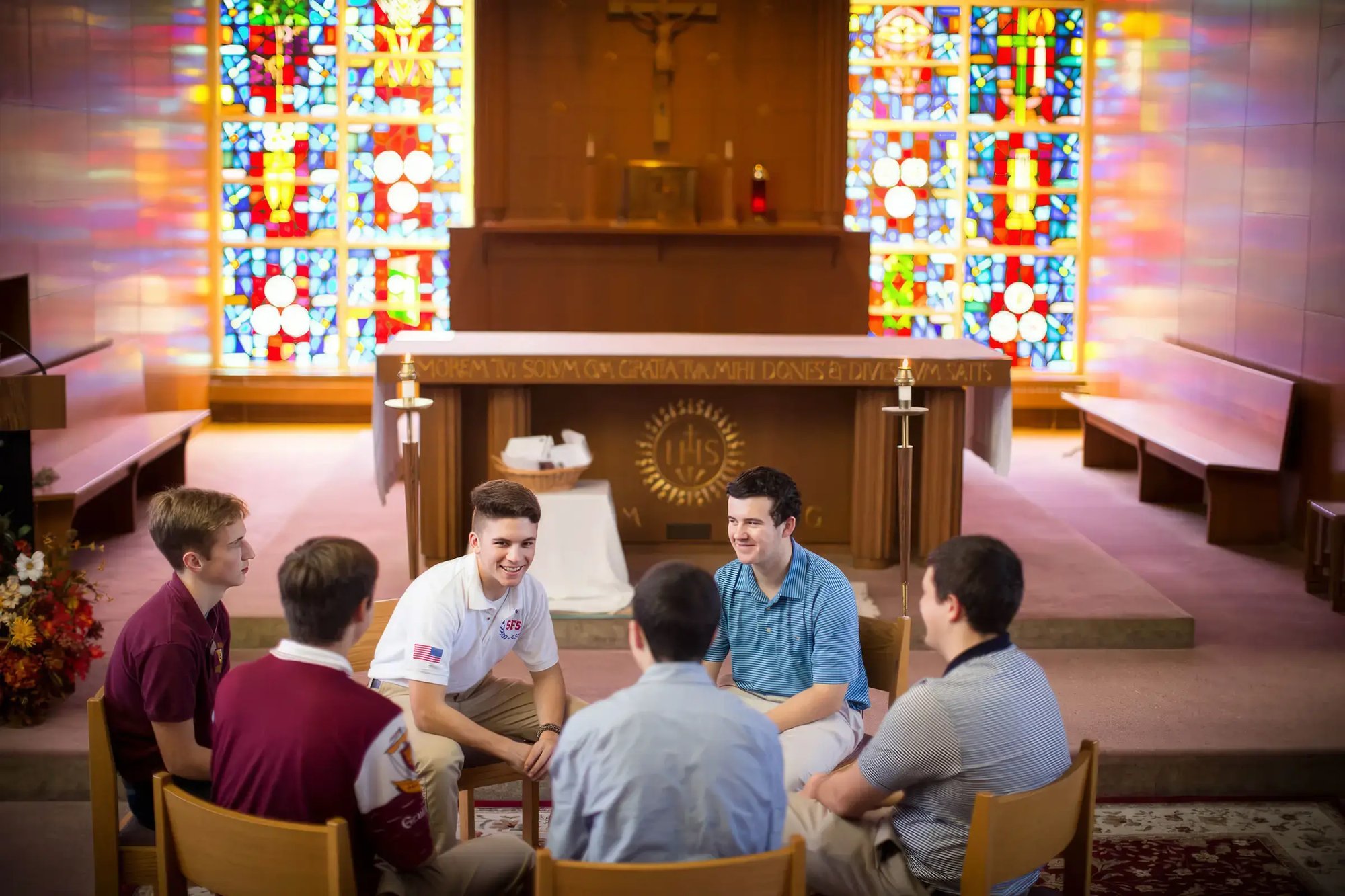
As a Jesuit Catholic school we strive to challenge our students to become young men of integrity, educated in faith and for justice, committed to academic excellence and service to others.
Through several required courses that delve into the heart of St. Ignatius' experience (Foundations in Faith, Ethics, etc.), along with mandatory service and retreat requirements throughout each student's time here at BC High, every student has a direct experience in the core of this Center's mission: to engage in Ignatian spirituality and to be companions with Jesus in a mission of reconciliation and justice.
Learn More